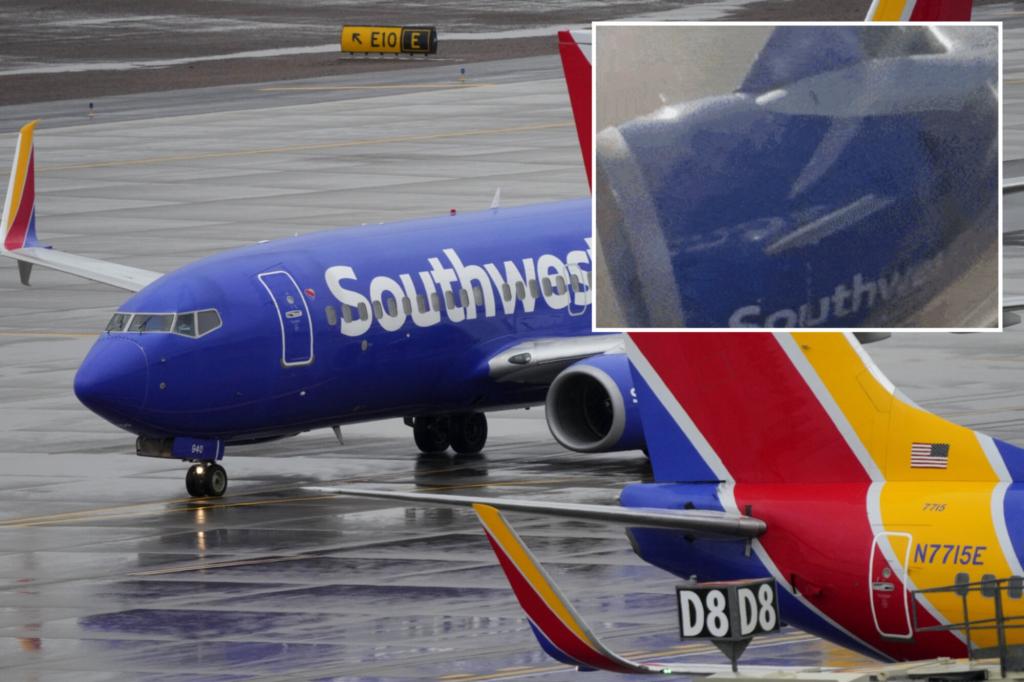On Sunday morning, a Southwest Airlines flight departing from Denver bound for Houston had to immediately return to the airport after a sheet of metal covering one of the Boeing 737-800’s engines sheared off during takeoff. This caused the engine cowling to detach and strike one of the plane’s wing flaps, as reported by the Federal Aviation Administration. The incident occurred shortly after takeoff and the plane safely landed back in Denver, where it was towed to the gate for further inspection.
The flight had taken off from Denver International Airport around 8:15 a.m. and was en route to William P. Hobby Airport in Houston. The issue with the engine cowling was noticed during takeoff and the decision was made to return to the airport as a precautionary measure. Once back on the ground, the plane was inspected by maintenance crews to assess the extent of the damage caused by the detached sheet of metal. Southwest Airlines did not provide immediate comments regarding the incident, and it is unclear when the flight will be able to resume its journey to Houston following the investigation.
The Federal Aviation Administration is currently investigating the incident to determine the cause of the engine cowling detachment and to ensure the safety of future flights. An incident like this, where a vital piece of the plane’s engine cover detaches mid-flight, raises concerns about the maintenance and safety protocols in place for aircraft. This incident serves as a reminder of the importance of regular maintenance and inspections to prevent potential safety hazards during flights.
Passengers on the flight were likely shaken by the sudden turn of events, but the pilot and crew’s quick actions to return to Denver safely should be commended. This incident highlights the importance of having highly trained and experienced flight crews who can handle emergency situations with professionalism and swiftly make decisions that ensure the safety of passengers and aircraft. The response to the engine cowling detachment demonstrates that the safety and well-being of passengers is the top priority for airlines and aviation authorities in the event of a mechanical issue during a flight.
The airline industry will no doubt use this incident as a case study to review and enhance safety protocols and maintenance procedures to prevent similar incidents in the future. By learning from this experience, Southwest Airlines and other carriers can strengthen their commitment to passenger safety and continue to provide reliable and secure air travel services. The investigation by the Federal Aviation Administration will provide valuable insights into the cause of the engine cowling detachment and offer recommendations for improving safety measures across the aviation industry.


